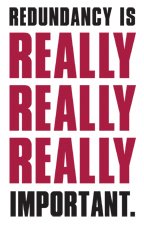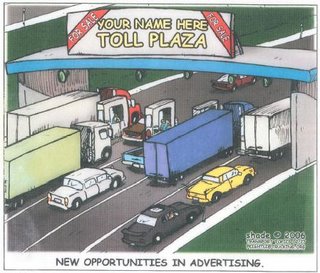A Redundant Border

He is the Chair of the Senate Committee on National Security and Defence which did the BORDERLINE INSECURE Report. That Report said that "Windsor-Detroit is of such strategic importance to both Canada and the United States that fixing it requires war-time urgency." The Committee proposed "Only those proposals for new crossing infrastructure at Windsor-Detroit which provide separate and secure infrastructure redundancy be considered. "
The redundancy argument has had an interesting history. It just keeps appearing and disappearing when appropriate. I guess it is something pulled out as required when all else fails whenever the going gets tough for a new crossing.
What prompted this comment is a note I received from a reader that deals with the redundancy issue.
Assuming that redundancy is a concern, then how many new crossings need we build so that we have enough. Is one new bridge satisfactory here or do we need several? Are there alternative actions that can be taken that can achieve the redundancy that we may need without spending billions on a new crossing? Perhaps it is time to address this issue if my reader is correct.
REDUNDANCY
Redundant - serving as a duplicate for preventing failure of an entire system (as a spacecraft) upon failure of a single component - Miriam Webster Dictionary
Disingenuous - lacking in candor; also: giving a false appearance of simple frankness: CALCULATING - - Miriam Webster Dictionary
In its January 2004 “Transportation Problems and Opportunities Report,” the Detroit River International Crossing Study (DRIC) states (page 44) that one of the problems to be addressed by the study is:
- The lack of reasonable options for maintaining the movement of people and goods in cases of major incidents, maintenance operations, congestion or other disruptions at any of the existing border crossings.
The delays following the events of 9/11/01 would not have been any less had there been two bridges. That is, the inspection staffing and facilities that were adequate on 9/10/01 would not have handled the problems of 9/11/01 regardless of whether there were two bridges or just one.
In fact, what the DRIC is really referring to is the specter of terrorist action to disrupt the crossing.
The Terrorist Modus Operandi
If there were to be a terrorist attack on the SW Ontario / SE Michigan border it would surely be aimed at disrupting the national economies. Consequently, there is every reason to believe that terrorists would attack all of the crossings simultaneously. The addition of another crossing would require only one more load of explosives.
A Disingenuous Argument #1
Those arguing for another crossing based on redundancy have never made any proposal whatsoever to strengthen the existing crossings against a terrorist attack. Presently vehicles drive onto the bridges and into the tunnel without even a cursory inspection to determine if they are carrying a suspicious cargo.
Clearly, if a terrorist strike is a concern (and it is the only valid concern here) then all vehicles must be inspected before they drive onto the bridge or tunnel. This process, known as reverse inspection, has not only never been proposed by those who worry about redundancy, it is never supported when it is proposed by others.
The concern for a terrorist strike is completely disingenuous.
A Disingenuous Argument #2
Between Kingston and Niagara Falls there are just two bridges carrying significant commercial traffic across the border. They are so far apart that they cannot possibly be seen as reasonable alternate routes, for each other in case of a breakdown. The commercial traffic between Canada and New York State is economically enormous and critical to the economies of the two nations.
Yet there is no talk of redundancy.
Between Vancouver and Sudbury Ontario there are only a, very widely separated border crossings served by major highway connections. Among them is a bridge (Sault Ste. Marie) and two land crossings (Winnipeg and Calgary). In each of these cases there is just no reasonable option for maintaining commercial traffic flow.
Yet there is no talk of redundancy.
In only two cases, between Vancouver and Montreal, is there a border that is served by two truck crossings located less than one hour apart. Something that might be called “redundancy.” Those are at Lewiston-Queenston / Peace Bridge and Blue Water Bridge / Ambassador Bridge.
And the pressure for “redundancy” is at the Ambassador Bridge.
If the dictionary ever needed an example of disingenuous this is it.
















